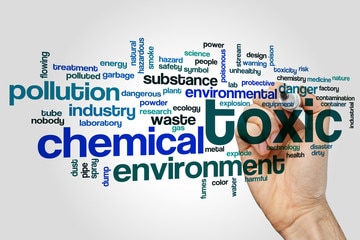Things You Never Knew About Atmospheric Contamination

Air pollution is a phenomenon by which particles (solid or liquid) and gases contaminate the environment. Such contamination can result in health effects on the population, which might be either chronic (arising from long-term exposure), or acute (due to accidents). Other effects of pollution include damage to materials, agricultural damage (such as reduced crop yields and tree growth), impairment of visibility (tiny particles scatter light very efficiently), and even climate change (certain gases absorb energy emitted by the earth, leading to global warming).
Air pollution is certainly not a new phenomenon. Early references to it date back to the Middle Ages, when smoke from burning coal was already such a serious problem that in 1307 King Edward I banned its use in lime kilns in London. More recently, there have been major episodes of air pollution, such as the 1930 catastrophe in the Meuse Valley in Belgium, where SO2 and particulate matter, combined with a high relative humidity, caused sixty-three excess deaths in five days. In 1948 similar conditions in Donora, Pennsylvania a small industrial city, caused twenty excess deaths in five days. Also, WHO reports that in 2012 around 7 million people died – one in eight of total global deaths – as a result of air pollution exposure. This finding more than doubles previous estimates and confirms that air pollution is now the world’s largest single environmental health risk. Reducing air pollution could save millions of lives.
CAUSES OF AIR POLLUTION
Air pollution is caused mainly by :
– Industrial emissions
– Fuel combustion in stationary sources
– Burning of fossil fuels like coal, wood and dry grass.
-Construction activity.
– Motor vehicles produce high levels of Carbon Monoxide (CO) and Hydrocarbons (HC) and Nitrogen Oxides (NO).
– Residential and Commercial activities also contribute to Air Pollution.
EFFECTS OF AIR POLLUTION
– The human health is affected due to poor air quality.
– Principally, air pollution affects the body’s respiratory system and the cardiovascular system. Though the individual reactions to air pollutants depend on the type of pollutant a person is exposed to and the degree of exposure.
– Air pollution may cause long term health problems : The health effects caused by air pollutants may range from biochemical and physiological changes like difficulty in breathing, wheezing, coughing and aggravation of existing respiratory and cardiac conditions.
HOW TO REDUCE AIR POLLUTION
You can help to reduce Air Pollution by :
– Driving good condition vehicles
– Stop burning wastes, refuse, dry grass & leaves.
– Plant trees and avoid purchasing products un-friendly to environment.
– Support and follow Air Act / Laws.
Let us help each other in making cleaner and healthier atmosphere where we live.

Thank you a lot for providing individuals with such a superb chance to read from here. It’s usually so excellent plus full of fun for me personally and my office friends to search the blog a minimum of thrice a week to learn the latest secrets you have got. And of course, I am also always happy with the fabulous pointers served by you. Certain 2 points in this posting are without a doubt the best I’ve had.